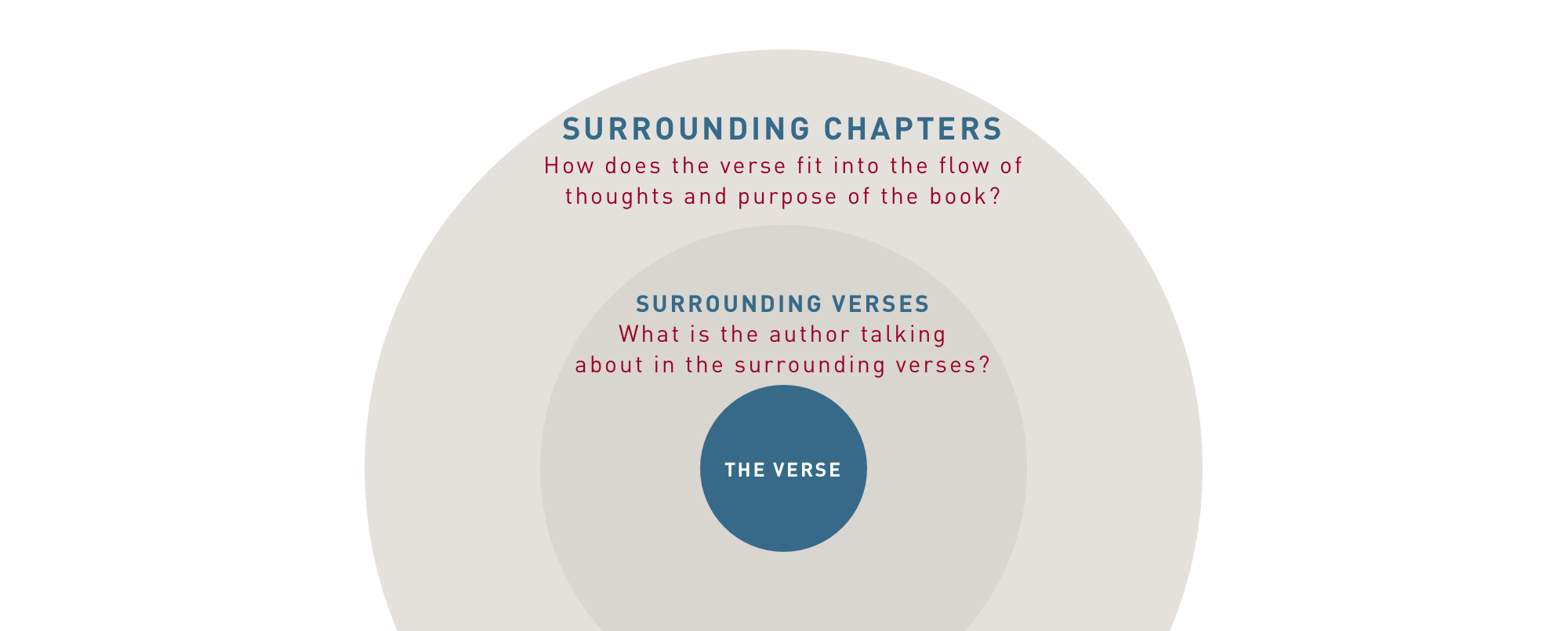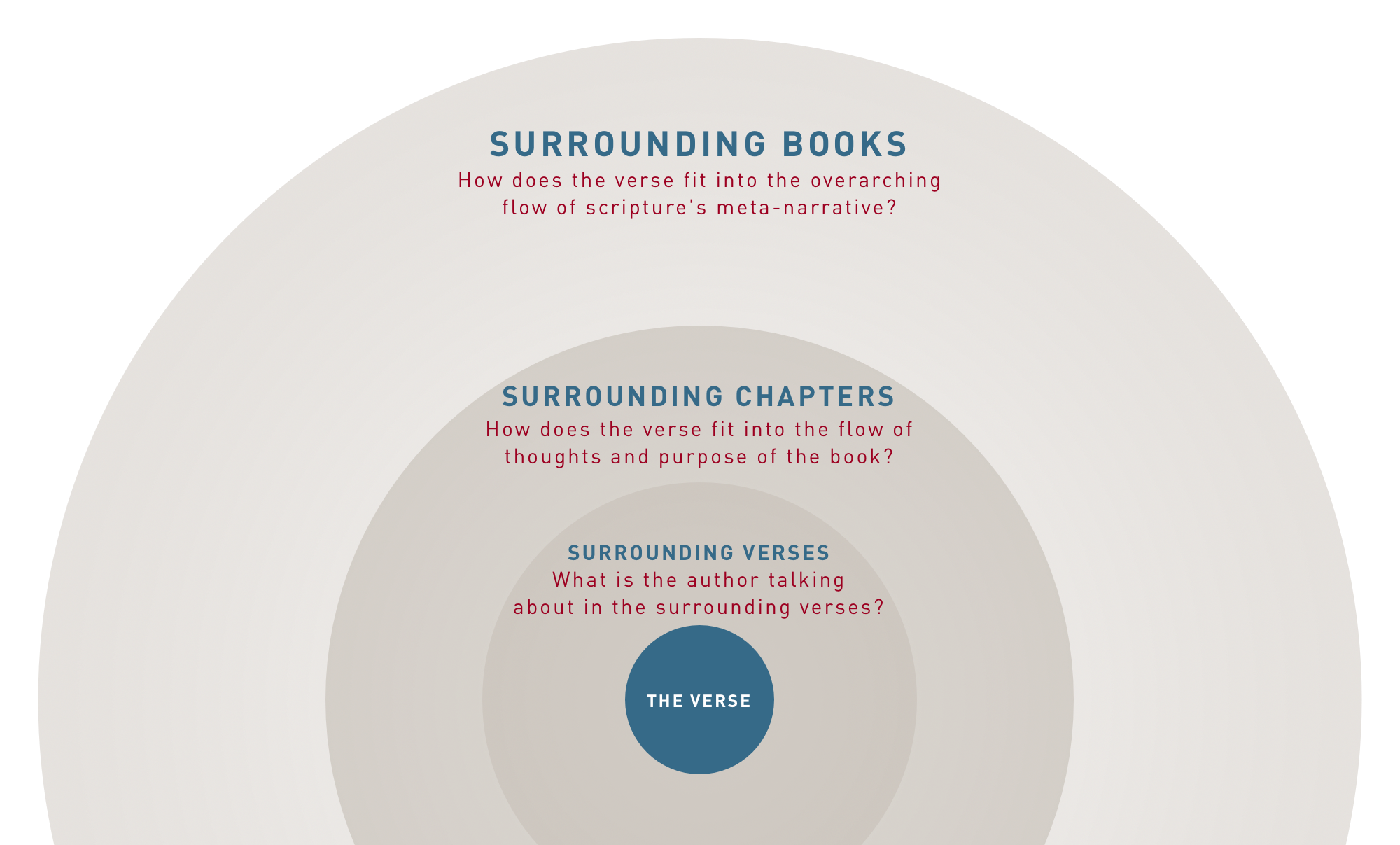
Biblical Context – What and Why?
Have you ever heard the phrase “biblical context?” Do you know what it means, and why it is important?
Let me explain by using the example of A Tale of Two Cities, by Charles Dickens. On page 141 it says, “So strange was the way in which he faded into silence, and so strange his fixed look when he had ceased to speak, that Darnay felt his own hand turn cold in the hand that slowly released and dropped it.”
Who is Darnay? Who is the unnamed man with whom he was shaking hands? Why was this man acting strange? What had they been talking about? What led them to shake hands in the first place? What emotion is the unnamed man experiencing to make him act strange? Is he angry? Sad? Shocked? Confused?
If I draw conclusions to these questions without reading any of the rest of the book, I will most likely be wrong in my assumptions. Why?
I would run into problems because I am taking the sentence out of context.
Now, if we read the paragraph preceding and following the sentence, we might get a few answers. We’d get even more if we read the preceding and following chapters. And the way to fully understand the sentence is to read the book completely, from start to finish.
Meaning is derived not only from the passage itself, but also from all the passages surrounding it.
We could not understand this individual sentence outside the realm of the entire story. It doesn’t make sense standing alone, right?
Biblical Context Changes Everything
The same is true when it comes to studying God’s Word.

A verse should not be disconnected from its surrounding context.

Each verse is connected to the surrounding verses, which are connected to the passage as a whole

These passages make up chapters and are surrounded by more chapters which make up the book.

Even the individual books in the Bible are tied to one another. We can’t simply plop down, open to a random verse, pluck it out of the surrounding context, and be confident we understand it fully. The biblical context of any verse or passage is extremely important.
We need to make sure that we understand the big picture of both the Bible itself and the specific book within the Bible that we are studying before we dive into the details of one verse or passage.
A New Testament Example of the Hermeneutic Process
Let’s look at a passage in Philippians to see an example.
“Brothers, I do not consider that I have made it my own. But one thing I do: forgetting what lies behind and straining forward to what lies ahead, I press on toward the goal for the prize of the upward call of God in Christ Jesus.” Philippians 3:13-14
Initial Observations of the Immediate Context
Without looking at any of the context surrounding this passage, there’s a lot we don’t know. Who is speaking? Who is being spoken to? What does the author want that he hasn’t obtained but is working toward? How is the author pressing on; what does he mean by that? What specifically “lies behind” the author?
But when we do a little extra reading of the previous and following text, we have a much more accurate picture of what is happening here. Philippians is only four chapters long, so it won’t take too much effort to read it. By starting at the beginning, we find that the author is Paul (1:1), and that the audience is all the believers that belong to the church of Philippi (1:1).
The answer to our question of what Paul is trying to obtain is found in the more immediate context, just a few verses back. Starting in 3:10, Paul begins to list out some goals he has: “that I may know him and the power of his resurrection”, “share in his sufferings”, “become like him in his death”, “that by any means possible I may attain the resurrection from the dead (3:10-11). He then goes on to say at the beginning of our section, “Not that I have already obtained this or am already made perfect…”(3:12).
Each of Paul’s goals could be studied in depth and hold a lot of meaty truth to them, but for the sake of studying context alone let’s sum it up. The “it” that Paul is seeking in 3:13 is the complete attainment of these desires. He does not see himself as being fully conformed to the life of Christ yet. He still has farther to go before he is made perfect.
Moving Outward to the Larger Context
Next we asked, how is he “pressing on”, and what “lies behind” the author? Has something happened that he needs to leave in the past? When we search the surrounding context we find that towards the beginning of chapter 3, Paul has laid out a synopsis of his life before Christ. When Paul speaks of “forgetting what lies behind”, in vs. 13, he is talking about his past life, with all its achievements, prestige, and anything that he possessed. He is counting literally everything he has ever had or done as garbage in comparison with knowing Christ, and so he forgets it all to forge ahead and one day be made perfect. By “pressing on” he is making this future perfection the focus of his life, it is what he is striving toward in all that he does. How and why can he strive towards it? Verse 12 tells us – “because Christ Jesus has made me his own.”
Do you see the importance of understanding biblical context? Often you can clear up a lot of confusion by simply reading through the verses preceding or following the one you are looking at. To gain the most insight, read through the entire book to get a big picture context, as well as compare your conclusions to the rest of God’s Word.
Get It Right By Getting the Biblical Context
We want to glean as much truth from the Word as possible, and achieving this requires us to take the context into consideration. Take the aerial view before you use you zoom in to look at the details. You cannot completely understand a particular part until you understand the whole. Remember, meaning is derived not only from the passage itself, but also from all the passages surrounding it.
Biblical context is important because it can help prevent wrong interpretations of Scripture, faulty theology, and confusion while reading God’s Word. It can also help you realize the full meaning of a passage and get the most out your Bible Study. We love to say, “Context is King!”


